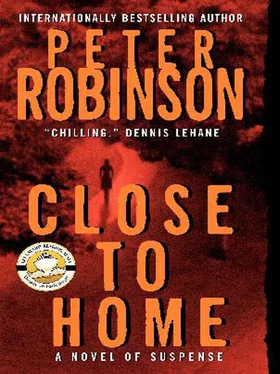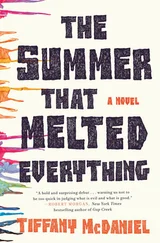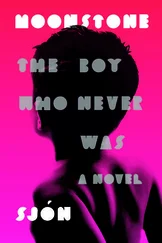“I wish I could answer that, I really do,” said Annie. She took out her notebook. “Can I just get some information from you?”
Martin Armitage ran his hand over his head, sighed and flopped down on the sofa again. “Yes, of course,” he said. “And I apologize. My nerves are a bit frazzled, that’s all.” When he looked right at her, she could see the concern in his eyes, and she could also see the steely gaze of a man who usually got what he wanted. Josie came in with tea, which she served on a silver tray. Annie felt a bit embarrassed, the way she always did around servants.
Martin Armitage’s lip curled in a smile, as if he had noticed her discomfort. “A bit pretentious, isn’t it?” he said. “I suppose you’re wondering why a dyed-in-the-wool socialist like me employs a maid? It’s not as if I don’t know how to make a cup of tea. I grew up with six brothers in a West Yorkshire mining town so small nobody even noticed when Maggie Thatcher wiped it off the face of the earth. Bread and dripping for breakfast, if you were lucky. That sort of thing. Robin here grew up on a small farm in Devon.”
And how many millions of pounds ago was that? Annie wondered, but she wasn’t here to discuss their lifestyle. “It’s none of my business,” she said. “I should imagine you’re both very busy, you can use the help.” She paused. “Just as long as you don’t expect me to stick my little finger in the air while I drink my tea.”
Martin managed a weak laugh. “I always like to dunk digestive biscuits in mine.” Then he leaned forward and became serious again. “But you’re not going to make me feel better by distracting me. What can we do? Where do we look? Where do we begin?”
“We’ll do the looking. That’s what we’re here for. When did you first start to believe something was wrong?”
Martin looked at his wife. “When was it, love? After tea, early evening?”
Robin nodded. “He’s always home for tea. When he wasn’t back by after seven o’clock and we hadn’t heard from him, we started to get worried.”
“What did you do?”
“We tried to call him on his mobile,” Martin said.
“And what happened?”
“It was turned off.”
“Then what?”
“Well, about eight o’clock,” Robin said, “Martin went looking for him.”
“Where did you look, Mr. Armitage?”
“I just drove around Eastvale. A bit aimless, really. But I had to do something. Robin stayed home in case he rang or turned up.”
“How long were you gone?”
“Not long. I was back, oh, around ten.”
Robin nodded in agreement.
“Do you have a recent photograph of Luke?” Annie asked. “Something we can circulate.”
Robin went over to one of the low polished tables and picked up a package of prints. She thumbed through them and handed one to Annie. “This was taken at Easter. We took Luke to Paris for the holidays. Will it do?” Annie looked at the photograph. It showed a tall, thin young man, dark hair curling around his ears and brow, who looked older than his fifteen years, even to the point of having the fluffy beginnings of a goatee. He was standing by a grave in an old cemetery looking moody and contemplative, but his face was out of the shadows, and close enough to the camera to be useful for identification purposes.
“He insisted on visiting the Père Lachaise cemetery,” Robin explained. “That’s where all the famous people are buried. Chopin. Balzac. Proust. Edith Piaf. Colette. Luke’s standing by Jim Morrison’s grave there. Have you heard of Jim Morrison?”
“I’ve heard of him,” said Annie, who remembered friends of her father’s playing loud Doors records even years after Morrison’s death. “Light My Fire” and “The End” in particular had lodged themselves somewhere in her memories of those days.
“It’s funny,” said Robin, “but most of the people making pilgrimages to that grave weren’t even born when he was at the height of his popularity. Even I was just a little girl when the Doors were first big.”
That placed her in her early forties, Annie guessed, and still a striking figure. Robin Armitage’s golden tresses hung over her narrow shoulders and shone every bit as much in real life as they did in her magazine adverts for shampoo. Despite the signs of strain and worry, hardly a line marred her smooth, pale complexion. Though Robin was shorter than Annie had imagined, her figure looked as slender as it had been in all the posters Annie had ever seen of her, and those lips, which had so tantalizingly sucked the low-fat ice cream off the spoon in a famous television commercial some years ago, were still as full and pink as ever. Even the beauty spot Annie had always imagined was fake was still there, at the corner of her mouth, and close up it looked real.
Yes, Robin Armitage looked as good as she had twenty years ago. Annie thought she ought to hate the woman on sight, but she couldn’t. It wasn’t just because of the missing boy, either, she told herself, but she sensed something very human, very vulnerable behind the exquisitely packaged model’s facade.
“This’ll do fine,” said Annie, slipping the photograph into her briefcase. “I’ll get it circulated as soon as I get back. What was he wearing?”
“The usual,” said Robin. “Black T-shirt and black jeans.”
“You say ‘the usual.’ Do you mean he always wears black?”
“It’s a phase,” said Martin Armitage. “Or at least that’s what his mother tells me.”
“It is, Martin. You wait; he’ll grow out of it. If we ever see him again.”
“Don’t worry, Mrs. Armitage. He’ll turn up. In the meantime, I’d like more information about Luke himself, anything you know about his friends, interests or acquaintances that could help us work out where he may be. First of all, was everything all right between you? Had there been any arguments recently?”
“Not that I can think of,” Robin answered. “I mean, nothing serious. Everything was fine between us. Luke had everything he wanted.”
“It’s been my experience,” said Annie, “that nobody ever has everything they want, even if someone who loves them very dearly thinks they have. Human needs are so various and so hard to define at times.”
“I didn’t only mean material things,” said Robin. “As a matter of fact, Luke isn’t much interested in the things money can buy, except for electronic gadgets and books.” Her long-lashed blue eyes blurred with tears. “I meant that he has all the love we can give him.”
“I don’t doubt it,” said Annie. “What I was thinking, though, was that maybe there was something he wanted to do that you wouldn’t let him?”
“Like what?” asked Robin.
“Something you didn’t approve of. A pop concert he wanted to go to. Friends you didn’t like him being with. That sort of thing.”
“Oh, I see what you mean. But I can’t think of anything. Can you, darling?”
Martin Armitage shook his head. “As parents go, I think we’re pretty liberal,” he said. “We realize kids grow up quickly these days. I grew up quickly myself. And Luke’s a smart lad. I can’t think of any films I wouldn’t want him to see, except for pornography, of course. He’s also a quiet, shy sort of boy, not much of a mixer. He keeps to himself.”
“He’s very creative,” Robin added. “He loves to read and he writes stories and poems. When we were in France, it was all Rimbaud, Verlaine and Baudelaire.”
Annie had heard of some of those poets through her father, had even read some of them. She thought they were a little advanced for a fifteen-year-old boy, then she remembered that Rimbaud started writing poetry at fifteen and gave it up at nineteen.
“What about girlfriends?” Annie asked.
Читать дальше












